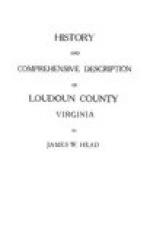Operating, for the most part, independently and in detached parties the command offered no serious menace to citizens or soldiery, though the latter were sometimes harassed and annoyed by them.
Mosby, who had greatly desired and often essayed their capture, was finally given the opportunity for which he had eagerly waited. Learning that the Rangers were encamped near Millville, W. Va. (Keyes’ Switch, as it was then called), he dispatched Captain Baylor with a detachment of horse to that point.
Major Scott who, in 1867, wrote Partisan Life With Mosby, has this to say of the fight which followed: “He (Baylor) took the precaution to pass in between Halltown (where there was a brigade of infantry) and the camp. When within fifty yards of the Loudoun Rangers the order to charge was given. Two of them were killed, four wounded, and 65 taken prisoners, together with 81 horses with their equipments. The rest of the command sought refuge in the bushes. The only loss which Baylor sustained was Frank Helm, of Warrenton, who was wounded as he charged among the foremost into the camp.”
The day of the capture General Stevenson, commanding at Harper’s Ferry, and under whose orders the Rangers had been acting, sent the following message to General Hancock at Winchester:
Harper’s Ferry, April 6, 1865.
Mosby surprised the
camp of the Loudoun Rangers near Keyes’
Ford and cleaned them
out. He made the attack about 10
a.m....
John D. Stevenson,
Brigadier-General.
When Major-General Hancock, so distinguished in the Federal Army, heard of Baylor’s exploit he laughed heartily and exclaimed: “Well, that is the last of the Loudoun Rangers.”
As indeed it proved to be!
Mosby’s Command in its Relationship to Loudoun County.
From January, 1863, until the close of the war Colonel Mosby’s partisan operations were mostly confined to the counties of Loudoun and Fauquier, this rich, pastoral country affording subsistence for his command and the Blue Ridge a haven to which to retreat when hard pressed by the superior numbers that, from time to time, were sent against him. Here he planned and executed most of the daring coups that were to win for him international fame.[31] Here also his men were dispersed and reassembled with marvelous facility—one of countless manifestations of his great original genius. “They would scatter for safety, and gather at my call like the Children of the Mist,” was what he wrote in after years. Of all his methods this has been the least clearly understood. The explanation that he has offered in his War Reminiscences can be only partially complete; for he could not, with propriety, point to his personal magnetism and daring as the dominant influences, though he must have known that to an extraordinary extent they were responsible for this almost unparalleled devotion. “The true secret,” he says, “was that it was a fascinating life, and its attractions far more than counterbalanced its hardships and dangers. They had no camp duty to do, which, however necessary, is disgusting to soldiers of high spirit. To put them to such routine work is pretty much like hitching a race horse to a plow.”




